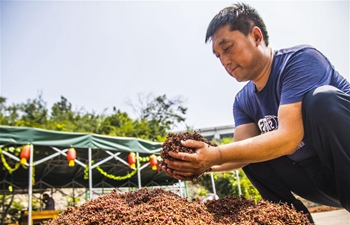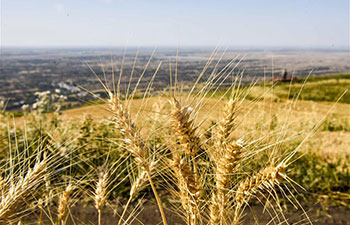BUCHAREST, Aug. 29 (Xinhua) -- Romanian President Klaus Iohannis on Wednesday asked the government to take prompt and effective measures to deal with the massive outbreaks of African swine fever in the country, while compensating the affected producers as soon as possible.
"The priority needs to be taking all measures to prevent the spreading of the virus and to compensate the affected producers as quickly as possible, so as to soften the social impact," the president was quoted as saying in a press release sent by the Presidential Administration.
He stressed that "those who managed in a defective way this crisis should take the responsibility of the state of fact."
The president criticized the government for the "defective" crisis management that "pushed local producers to the brink of bankruptcy."
The criticism was immediately refuted by Agriculture Minister Petre Daea, who stressed that the government has always acted fairly, swiftly and effectively with regard to African swine fever.
According to him, Romania has taken all measures to prevent the entrance of this virus into the country since an outbreak in Ukraine in 2012, at the border with Romania. When the first outbreak occurred in Romania at the end of July 2017 the authorities acted quickly on the basis of the contingency plan and avoided the spread of the virus and new outbreaks.
"The European Commission, through the specialized structures, decided that the area was free," the minister explained.
The new outbreak at the beginning of the current year was most likely caused by foreign contaminated products of animal origin that entered the country, the minister pointed out.
Meanwhile, President of the National Sanitary Veterinary and Food Safety Authority Geronimo Branescu told the press on Wednesday that Romania and Europe are currently facing the worst animal disease after the Second World War.
The latest official statistics as of Wednesday showed that as many as 123,411 pigs were slaughtered after 781 outbreaks appeared in 10 of the country's 41 counties, affecting 165 localities. Out of the outbreaks, 11 are in industrial holdings and one is in a slaughterhouse. Also, 40 wild boars were also affected by the virus.

















